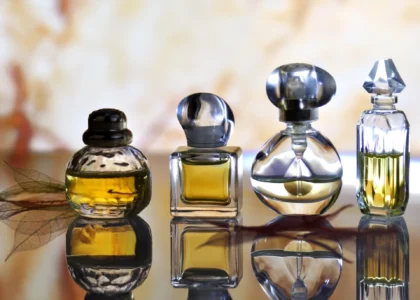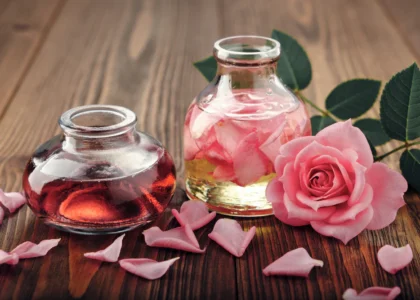When you think about wearing perfume, the first things that come to mind might be your personal preferences or the occasion for which you’re choosing a fragrance. However, one key factor that many overlook is the environment you’re in. Humidity, altitude, and even air pollution can have a significant impact on how a perfume smells and how long it lasts. Whether you’re in a humid tropical climate or living in a cold, dry area, these environmental factors can alter the way your fragrance behaves.
As a perfume expert and perfume consultant, Parush Khanna has spent years studying how these elements interact with fragrance molecules. Through his expertise, he’s discovered that your surroundings can influence your scent experience in ways you might not expect. In this post, we’ll explore how the environment affects your perfume and offer tips for making the right choice based on where you live and the conditions you face.
1. Humidity: The Amplifier of Scent
In areas with high humidity, the air is filled with moisture, which can cause scents to behave differently than they would in drier climates. Humid conditions tend to amplify the scent of a perfume. When the air is saturated with moisture, it helps to disperse the fragrance molecules more efficiently, making the perfume smell stronger and linger longer.
If you live in a humid environment, like a coastal region or a tropical climate, your fragrance will likely smell more intense than it would in a dry area. While this can be an advantage in terms of longevity, it can also make heavier perfumes overwhelming. Perfume experts like Parush Khanna recommend opting for lighter, fresher fragrances that won’t overpower the senses in humid conditions.
Citrus, floral, and aquatic notes work well in these environments. For example, Berry Ardens Perfumes offers refreshing citrus-based scents that are ideal for hot, humid days. These fragrances not only help you feel invigorated but also won’t become too heavy in the dense air. Lighter notes like lemon, bergamot, and jasmine can create an uplifting, clean scent that won’t suffocate in the heat.
2. Cold and Dry Climates: Go for Stronger Scents
In contrast, colder and drier climates present a different challenge. Perfumes behave differently in these conditions, as low humidity and chilly air cause scents to dissipate more quickly. The dry air doesn’t help diffuse the fragrance molecules, meaning the scent will fade faster than it would in a more humid environment.
If you live in a cold region, you may need to choose stronger, more intense perfumes to ensure they last throughout the day. Perfume consultants like Parush Khanna suggest turning to fragrances with richer, deeper base notes such as amber, musk, and vanilla. These scents tend to stick to the skin longer, even in dry, cold environments.
For colder climates, perfumes with heavier floral, spicy, or woody compositions are a great choice. Berry Ardens Perfumes, known for their luxurious blends, offers scents that balance these heavier notes with soft undertones, ensuring they last throughout the day without becoming too overpowering. Woodsy notes like sandalwood or cedarwood, combined with rich florals like rose or lily, will give you a warm and comforting scent that holds up well in the cold.
3. Altitude: A Subtle Shift in Scent Composition
Another environmental factor to consider is altitude. If you live in high-altitude areas, such as mountainous regions, you might notice that your perfume behaves differently. At higher altitudes, the air is thinner and drier, which can make fragrances evaporate more quickly and affect how they develop over time.
In these conditions, perfume expert and consultant Parush Khanna advises that you choose perfumes with well-balanced compositions, especially those with strong heart and base notes. The top notes (the initial impression you get when you spray a fragrance) tend to fade faster at higher altitudes, so it’s important to choose scents that have staying power throughout their lifespan. Fragrances that evolve slowly and have depth will provide you with a more satisfying scent experience at elevated altitudes.
Scent layering can also be a useful technique. Applying a fragrance lotion or body oil before spritzing your perfume can help lock in the scent and extend its longevity. Berry Ardens Perfumes offers fragrances that are designed with longevity in mind, ensuring that they stay with you even in thinner air.
4. Air Pollution: The Silent Scent Saboteur
While we’re all aware of the effects of air pollution on health, its impact on fragrance is often overlooked. Pollution can break down fragrance molecules, causing them to dissipate more quickly or even smell different. In areas with high levels of pollution, external factors like smoke, exhaust fumes, and industrial odors can mix with your perfume, dulling its original scent or making it smell muddled.
To combat the effects of pollution, perfume experts like Parush Khanna recommend selecting more robust fragrances that can hold up against environmental interference. A perfume with a complex, layered composition — such as those from Berry Ardens Perfumes — is more likely to withstand the effects of pollution. These perfumes contain a variety of notes that can better resist breakdown, helping the fragrance remain consistent throughout the day.
In polluted areas, it’s also a good idea to opt for perfumes with natural ingredients, as they tend to be more stable and durable. Floral, woody, and oriental fragrances tend to be more resilient and have a lasting depth that can persist despite the challenges posed by poor air quality.
5. Personal Tips for Choosing the Right Perfume for Your Environment
- Consider your local climate: If you live in a humid region, choose light, fresh fragrances. If you’re in a cold, dry area, opt for richer, more intense perfumes.
- Layer your scent: In polluted or high-altitude areas, consider layering a matching body lotion or oil with your perfume to help it last longer.
- Test your fragrance in real-world conditions: Don’t just try a perfume in a store. Test it out in your local environment to see how it develops throughout the day.
- Choose long-lasting compositions: If you live in a region where fragrance longevity is a concern, look for perfumes with well-developed base notes that can endure despite external conditions.
Conclusion
The environment you live in plays a significant role in how your perfume smells and lasts. Whether it’s the humidity of a tropical climate, the dryness of a cold region, or the pollution of a city, these factors can all influence the fragrance experience. As a perfume expert and consultant, Parush Khanna understands the importance of tailoring fragrance choices to match your surroundings.
Brands like Berry Ardens Perfumes offer a range of options that can perform well in diverse environments, ensuring you have a scent that lasts and evolves in harmony with your surroundings. By considering factors like humidity, altitude, and pollution, you can select the perfect fragrance to suit your environment and enjoy its full olfactory potential.





